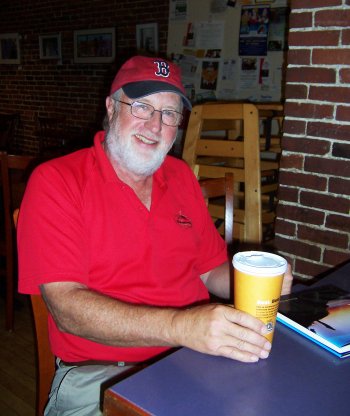Poets love to use onomatopoeia, which are words that phonetically imitate the sounds they are describing. Some examples are words used to depict animal sounds such as woof, bray, hiss, moo, honk and meow.
The names of birds like cuckoo, whooping crane, whip-poor-will and chickadee are based on their calls. Most of the names given to crows in different languages all include the “k” or “c” consonant that vocalizes the cawing cry of crows. We can hear the power of the crow's voice resonating in its name.
Children delight in nursery rhymes that make generous use of words that have their origin in sounds, such as “baa, baa, black sheep.” Sounds made by water can be heard in words like drip and drizzle.
In the poem The Raven by Edgar Allen Poe, you can hear the tapping, rapping of the raven. “While I nodded, nearly nodded, suddenly there came a tapping. As of someone gently rapping, rapping at my chamber door. 'Tis some visitor, I muttered, tapping at my chamber door. Only this and nothing more.”
One of Edward Hale's poems uses words formed by sounds in nature. “The dragonflies are humming as they please. The humming birds are humming all around. The clethra all alive with buzzing bees. Each playful leaf, its separate whisper found, As laughing winds went rustling through the groove.”
For 40 years, Glenn K. Currie of Concord has been composing poetry, some of which is included in the five books he has written. I recently listened to him talk about his poetry. He said, “When I wrote the poem Gettysburg, I wanted the reader to hear the beating of the drums as both the blue and gray soldiers marched off the field on the day after the battle.” He then showed me the poem in his book, In the Cat's Eye. The poem includes the following: “Distant drum beats floated in the heat. Tat-tat, tat-tat, tat-tat, softly fell like tear drops among the lost souls…rising to the drum beat's call. Tat-tat, tat-tat, tat-tat, whispered the gentle breeze, as it gathered up the dust.”
This poem also allows our imagination to see how “The trampled grass gathered itself and slowly rose from the earth, blood stained and burned.”
In very few words, Currie enabled us to hear and see the Gettysburg battlefield when the fighting was over. As soldiers departed among the dead, silence reigned except for the somber beating of the marching drums, a poignant use of onomatopoeia.









